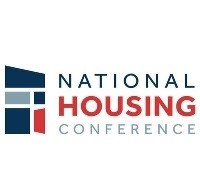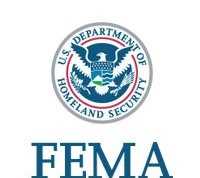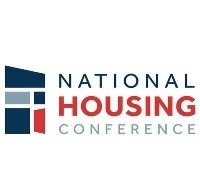Rose Center for Public Leadership Working with Rochester Mayor on Downtown Revitalization
Panel of Interdisciplinary Experts to Advise Rochester as Part of Yearlong Fellowship Program
ROCHESTER, N.Y. – March 17, 2016 – (RealEstateRama) — The Rose Center for Public Leadership, jointly operated by the National League of Cities (NLC) and the Urban Land Institute (ULI), is working this week with Rochester Mayor Lovely A. Warren to help the city, its partners and stakeholders develop land use and implementation strategies to activate and revitalize Main Street, the Genesee River Corridor, and the Broad Street Aqueduct, creating dynamic connections between these three downtown assets.
“It is an honor and a privilege to welcome members of the Rose Fellowship to Rochester,” Mayor Warren said. “I want to do more to make Rochester a vibrant, world class destination. I want to bring in more jobs, more residential and mixed-use development, more exciting events, more entertainment and more educational opportunities. To do this, we must start looking innovatively and strategically at our public spaces.”
The study area is approximately 112 acres: the Main Street corridor between Plymouth Avenue and Chestnut Street; Genesee River corridor between Andrews Street and the Court Street Dam; Broad Street Aqueduct and former Rochester Subway Tunnel underneath Broad Street between Woodbury Boulevard and Main Street. These three key assets intersect in the heart of Rochester and are central to the community’s identity, but their lack of vibrancy and activity have impacted the perception of downtown, the city, and even the region.
Downtown Rochester has experienced unprecedented investment in residential development and other exciting projects in recent years. As a result, the city is attracting jobs and an emerging cohort of millennials, empty nesters and urban enthusiasts are exhibiting an increasing desire for urban living. The City is now looking to usher in the next phase of downtown’s transformation—to generate new restaurants, entertainment and retail establishments. Mayor Warren and City leaders recognize that generating activity among these three assets will be a catalyst to helping Rochester reach its full potential as a vibrant place to live, work and play.
“Mayor Warren and her team recognize the relationship between physical development and economic vitality in their downtown,” said Rose Center Director Jess Zimbabwe. “Clear leadership from the city will set the tone for a vibrant future in Rochester.”
The Rose Center’s mission is to encourage and support excellence in land use decision making by providing public officials with access to information, best practices, peer networks, and other resources to foster creative, efficient, practical, and sustainable land use policies. Each year, the center’s Daniel Rose Fellowship program invites the mayors of four large U.S. cities to select a team with land use decision-making authority to receive technical assistance on a local land use challenge. This year’s fellowship class is from the cities of Birmingham, Ala.; Denver; Long Beach, Calif. and Rochester, N.Y.
“Local officials play a critical role in land use decision-making, and we are excited to work with Mayor Warren and her team to revitalize assets in Rochester’s downtown,” said Clarence E. Anthony, CEO and executive director of the National League of Cities (NLC). “We are pleased to support the Rose Center’s mission to make urban spaces a vibrant and active part of our communities.”
“The Rose Center has an excellent track record of helping cities reinvent themselves to be more vibrant, livable and successful,” said Urban Land Institute Global Chief Executive Officer Patrick L. Phillips. “We look forward to the recommendations from the Center’s fellows on how best to transform Rochester’s vision for its downtown into a strategy that provides long-lasting benefits to the entire community.”
Mayor Warren’s team includes Rose Fellows Baye Muhammad, Commissioner of Neighborhood and Business Development; Zina Lagonegro, Director of Planning and Zoning; and Anne DaSilva Tella, associate administrative analyst in the Department of Neighborhood and Business Development’s project development division; who are assisted by senior community housing planner Kevin Kelley in the Department of Neighborhood and Business Development’s housing division.
The panel will be briefed by Mayor Warren and her team, tour the study area and meet with community, business and civic leaders and other stakeholders. Drawing upon their professional expertise and experience, the panelists will apply the information gathered during the study visit and present recommendations for how the city, its partners and stakeholders can achieve their goals for the area. All of Rochester’s expenses to participate in the program—including the panel’s visit—are underwritten by the Rose Center to ensure objectivity during the process.
The panel will be co-chaired by Rochester’s Rose Fellowship faculty advisers: architect Hilary Bertsch, principal at EE&K in New York City; and real estate economist Nadine Fogarty, vice president at Strategic Economics in Berkeley, Calif. It also includes Rose Fellows from the other three cities in this year’s class: senior planner Phil Amthor from the City of Birmingham Department of Community Development; Evan Dreyer, deputy chief of staff to Denver Mayor Michael Hancock; and Long Beach Deputy City Manager Arturo Sanchez. Also serving on the panel are Davon Barbour, vice president for economic development and planning at the Downtown Partnership of Baltimore; Chicago-based urban planning and architecture expert Lee Bey, host of the Architect 360 podcast; Tampa-based downtown management expert Jim Cloar; landscape architect Charles Cross of the Detroit Collaborative Design Center at the University of Detroit Mercy; real estate developer, investment manager and advisor Lev Gershman, managing partner at Vista, Calif.-based Tideline Partners; former Orlando mayor and Florida secretary of state Glenda Hood, founding partner at the Florida-based collaboration/ leadership consultancy trisect, LLC; and urban planner Senait Kassa, an associate with New Orleans-based Billes Partners.
The Daniel Rose Fellowship is the flagship program of the Rose Center, established in 2008 by the ULI Foundation Governor Daniel Rose. The purpose of the program is to provide city leaders with the insights, peer-to-peer learning, and analysis needed to successfully improve their cities. The fellowship’s program of work includes a study tour of another U.S. or foreign city, working retreats at NLC’s and ULI’s national conferences, and study visits to each of the four fellowship cities. The cities of Austin, Texas; Boston; Charlotte, N.C.; Detroit; Hartford, Conn.; Honolulu; Houston; Indianapolis; Kansas City, Mo.; Louisville, Ky.; Memphis, Tenn.; Minneapolis; Nashville, Tenn.; Oakland, Calif.; Omaha, Neb.; Philadelphia; Phoenix; Pittsburgh; Portland, Ore.; Providence, R.I.; Sacramento, Calif.; Seattle; Tacoma, Wash. and Tampa, Fla. have participated in the first six years of the fellowship program.
NOTE TO EDITORS AND REPORTERS: Representatives of the Rose Center will be making a public presentation with preliminary findings from 9-11 a.m. EDT on Thursday, March 18 at the Little Theatre, 240 East Ave., #100, in Rochester.
About the Urban Land Institute
The Urban Land Institute is a nonprofit education and research institute supported by its members. Its mission is to provide leadership in the responsible use of land and in creating and sustaining thriving communities worldwide. Established in 1936, the Institute has more than 37,000 members worldwide representing all aspects of land use and development disciplines.
About the National League of Cities
The National League of Cities (NLC) is dedicated to helping city leaders build better communities. NLC is a resource and advocate for 19,000 cities, towns and villages, representing more than 218 million Americans.
ULI media contact: Robert Krueger and 202-624-7051
NLC media contact: Tom Martin at 202-626-3186
City of Rochester media contact: Jessica Alaimo at 585-428-7135













